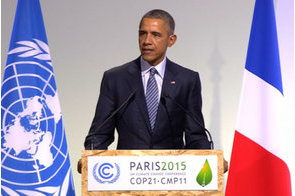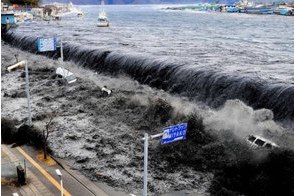Tinubu's climate governance approach needs course correction

Summary
President Tinubu's overly centralised climate governance structure constitutes a serious disruption to the institution-building process that made significant progress under his predecessor, Muhammadu Buhari.
During the first 100 days of the Bola Tinubu presidency, I wrote a column in this publication pondering the approach to climate governance the new administration was going to take to address climate change. As a presidential candidate, Tinubu's position on the mechanisms for climate response was vague at best. Months into his presidency, it was still unclear how the administration planned to implement Nigeria's existing climate policy.
Then in one fell swoop on 19 May 2024, the administration put its agenda on climate action and green growth in the spotlight when it announced the establishment of the Presidential Committee on Climate Action and Green Economic Solutions (P-CAGE) and the appointment of Ajuri Ngelale as the Special Presidential Envoy on Climate Action (SPEC). Going by its rubric, the committee is mandated to coordinate and oversee all government policies and programmes on climate action and green economic development. Its functions also include collaborating with other national governments and multilateral institutions towards achieving Nigeria’s climate objectives and carbon market ambitions.
The Office of the SPEC is mandated by the president to be the country’s lead negotiator on climate-related matters, including carbon market and management programmes. It is also the "supervising interface" between the Secretariat of the National Council on Climate Change (NCCC) and the NCCC Supervisory Council. (The NCCC, together with its adjunct bodies, is an institution established by the Climate Change Act (CCA) 2021, with the Council (also known as Supervisory Council) pre-eminently empowered to make policies on all climate-related matters in Nigeria, and the Secretariat as the administrative and technical arm of the Council. NCCC also administers the Climate Change Fund.)
In addition, the SPEC is in charge of coordinating all the activities of federal ministries, departments, and agencies as well as legislative and subnational entities in relation to meeting Nigeria's Nationally Determined Contributions (NDCs). The role of leading Nigeria's engagement with the United Nations Framework Convention on Climate Change, Conference of the Parties, and other international meetings on climate change also resides within the SPEC's purview.
Three weeks after these announcements, the president sacked the NCCC's pioneer Director-General/CEO and Head of the Secretariat, Salisu Dahiru, replacing him with Nkiruka Maduekwe in interim capacity, pending her confirmation by the Supervisory Council. These developments have confounded many climate policy observers and market operators. Besides the legal ramifications of some of the president's decisions, Tinubu's overly centralised climate governance structure constitutes a serious disruption to the institution-building process that made significant progress under his predecessor, Muhammadu Buhari.
The CCA, enacted under Buhari, provides the legal framework for mainstreaming climate change adaptation and mitigation, while also setting a target to achieve net-zero greenhouse gas emissions between 2050 and 2070 in Nigeria. It also establishes frameworks for facilitating the mobilisation of finance to support climate action. While implementation of the CCA has not matched its bold ambitions, many experts agree the country has significantly improved its regulatory framework over the last three years. The nonprofit Germanwatch says Nigeria is among the few developing countries to have set an economy-wide emissions reduction target.
However, the P-CAGE and Office of the SPEC, created through presidential directives, have effectively subordinated the regulatory and institutional frameworks established by an Act of the National Assembly. Majority of the functions of these newfangled entities overlap and conflict with the NCCC's legal mandates. The proliferation of political offices, committees, and bodies with overlapping functions has been a prominent feature of the Tinubu presidency. This only became crystallised in climate governance recently. Several Senior Special Assistants (SSAs) to the president on climate-related and green economy matters have been appointed, including some that have been seconded to the NCCC.
Many P-CAGE members are simultaneously statutory members of NCCC. The president himself is chair of both P-CAGE and NCCC. It is difficult to see how duplicating the roles of individuals and institutions offers strong benefits for the country. Nigeria is at a critical juncture where it needs to develop robust institutions and strengthen governance frameworks to effectively tackle climate change and other challenges. Convoluted bureaucracies will only hinder the effectiveness of governance and have negative effects on institution-building, including increased complexity, inefficient use of resources, and lack of accountability and transparency.
The role given to the envoy on climate action as the "supervising interface" between the NCCC and its Secretariat is an unnecessary layer of bureaucracy that the existing law does not contemplate. In an interview with Premium Times, Managing Partner at Amofin Solicitors, Kazeem Oyinwola, raised questions as to the legal basis for giving a non-member of the NCCC oversight of the engagements of the statutory institution.
Moreover, it is quite curious that Ngelale retains his role as Special Adviser to the President on Media and Publicity following his new appointment as SPEC. He is also Chairman of the Presidential Steering Committee on Project Evergreen, the supervisory group overseeing this project. It goes without saying that this amounts to spreading this individual too thin across multiple bodies, with the implication of reducing their effectiveness, complicating processes, and slowing down the implementation of policies and programmes.
Climate governance, which encompasses the policies, mechanisms, and institutions necessary to effectively manage and mitigate the impacts of climate change, requires the total dedication and technocratic competence of those in charge of it. This philosophy underlies the governance approach of the European Union and countries like China that are leading the pack in the race to net zero. At the core of effective climate governance is the development and utilisation of structures, processes, and policies to coordinate global efforts, mobilise resources, engage stakeholders, track progress, and ensure accountability.
Integrating and optimising knowledge, ideas, and perspectives from different sectors of society is a key climate governance function that is critical to fostering innovation and developing solutions for green growth. By setting up committees and creating a structure that whittles down the NCCC’s influence, rather than seeking to improve the existing institutional functions, the president's climate governance can become bogged down in "process overload" and less responsive to new ideas and approaches. A complex bureaucracy with a highly centralised structure as put in place by Tinubu could potentially limit creativity and stifle innovation.
One of the areas Nigeria is in dire need of innovation is in mobilisation of climate finance. While the country has a fairly acclaimed legal and regulatory framework for financing climate action, it has been unable to raise the investment needed to cut emissions and protect its people and businesses from the worsening impacts of extreme weather events. For instance, Nigeria's Energy Transition Plan (ETP) requires about US$410 billion in incremental funding up to 2060, or $10 billion annually, to achieve net-zero emissions in the energy sector, which contributes 65% of the country's total emissions. Less than 1% of this amount has been raised. Obviously, the country needs international investment to raise billions of dollars required to decarbonise its economy.
Implementing climate policies backed by robust legal and regulatory frameworks is essential for attracting international investment and support. However, it is yet to be seen how the role of the SPEC as the lead negotiator on climate finance in Nigeria gives more legitimacy to our climate commitments, improves coordination and transparency in climate action, delivers innovative market mechanisms, boosts investor confidence, and increases the flow of foreign investment into the country.
Credibility and trust among stakeholders are needed for climate governance to achieve much-needed harmony and coherence across multilevel decision-making processes. One way to achieve these is by insulating the governance system from political interference. Trust in the current system in Nigeria has diminished. The sudden creation of non-statutory bodies to superintend the governance system and dismissal of the pioneer DG/CEO of the NCCC less than two years into his four-year tenure of office have exposed the vulnerability of the system to political risk.
Another way to have a credible climate governance system is by imbibing inclusivity. Having a broad representation of state and non-state stakeholders in decision-making processes is particularly important for tailoring adaptation measures to vulnerable populations and ensuring a fair and just transition to a low-carbon economy. The Climate Change Act is not a perfect law, but it does make provision for members of the public to be appointed into the Council. This is in line with the tenets of the Paris Agreement and Sustainable Development Goals, both ratified by Nigeria. However, Tinubu's new climate governance system makes provision for only ex-officio membership. A system that lacks the vital principle of inclusivity cannot guarantee public accountability and transparency in its decision-making processes.
Ensuring that policy decisions are informed by the latest and accurate scientific knowledge is best practice in climate governance. Researchers around the world are studying the effects of global warming, including how it affects human health. Their findings will help in developing new policies and approaches for tackling the climate problem. Building the capacity of Nigerian public and private institutions for cutting-edge scientific research in climate change will help to develop and grow our human capital and position us as a climate leader.
Achieving climate leadership is a contingent outcome of nurturing institutional developments by enabling the development and implementation of clear and comprehensive legal and regulatory frameworks for green economy transition. The current administration needs to evolve an approach for driving green growth that prioritises the responsiveness and adaptability of institutional frameworks.
Martins Hile is a sustainability strategist and editorial consultant.
Related
-
Europe and China take the climate reins
The European Union and China have both committed to achieving net-zero carbon dioxide emissions.
-
Friends of the Earth says United States undermines ambitious and just climate deal
...says the Paris Climate Agreement is not a fair, just or science-based deal.
-
UNESCO announces tsunami warning exercise for Pacific rim countries
The Pacific-wide exercise will test the emergency response capacities of countries in the event of tsunamis.









